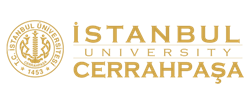Purpose: The relationship of human papilloma virus (HPV) infection and cervical cancer is obvious. Prophylactic HPV vaccines protect who is not vaccinated yet against HPV infection and its ricks. For this reason, informing the mothers having girl 5-18 years old is very essential. This descriptive study aims to estimate those mothers’ knowledge level on HPV vaccine.
Materials and Methods: The universe of this research consists of 192 mothers having girls 5-18 years old and applying to 11 family health centres located in Zonguldak provincial centre between January-May 2016. Data were collected between January-May 2016. This research was handled by universe instead of sample selection. Data were collected by a survey form prepared according to literature and expert’s opinion, in face-to-face interview. All data were statistically analysed, and data in categorical structure were presented as number and percent in descriptive statistics.
Results: In this research, %53.6 of mothers was 31-40 years old, %36.5 graduated from primary school, %57.8 was housewife, %51 had only 1 child. %74 of mothers was unaware of HPV while %58.9 did not know how it infects. %51,6 knew the method of protection against cervical cancer, %82,8 did not heard the cervical cancer vaccine while %82,4 did not know HPV vaccine. %95.3 did not know the cost of HPV vaccine, %48.4 did not know who is injected by HPV vaccine while %41.7 guessed HPV vaccine must be done only one dose. %65.6 thought HPV vaccine must be done between 5-25 years old whereas %31.8 thought this range is 0-55 years old. %99.5 of mothers did not vaccinated while %72.4 reported they were not vaccinated since they did not hear something about HPV vaccine. %78.6 thought HPV vaccine is not unhealthy, %97.4 reported they did not have girls vaccinated, and %67.7 reported they do not intend to have girls vaccinated.
Conclusion: It was estimated that the knowledge level of mothers having girls 5-18 years old was insufficient, and most of them did not have the information about vaccine. They also did not intend having girls vaccinated. For this reason, the cervicks cancer, early diagnosis and protection must be subjected in the graduate and postgraduate levels of nursing education. Besides, the verbal, written and visual communication tools must be used for the purposes of informing the community with respect to the cervicks cancer and HPV vaccine, and also its prevention methods within the frame of communal health activity.


.jpg)


